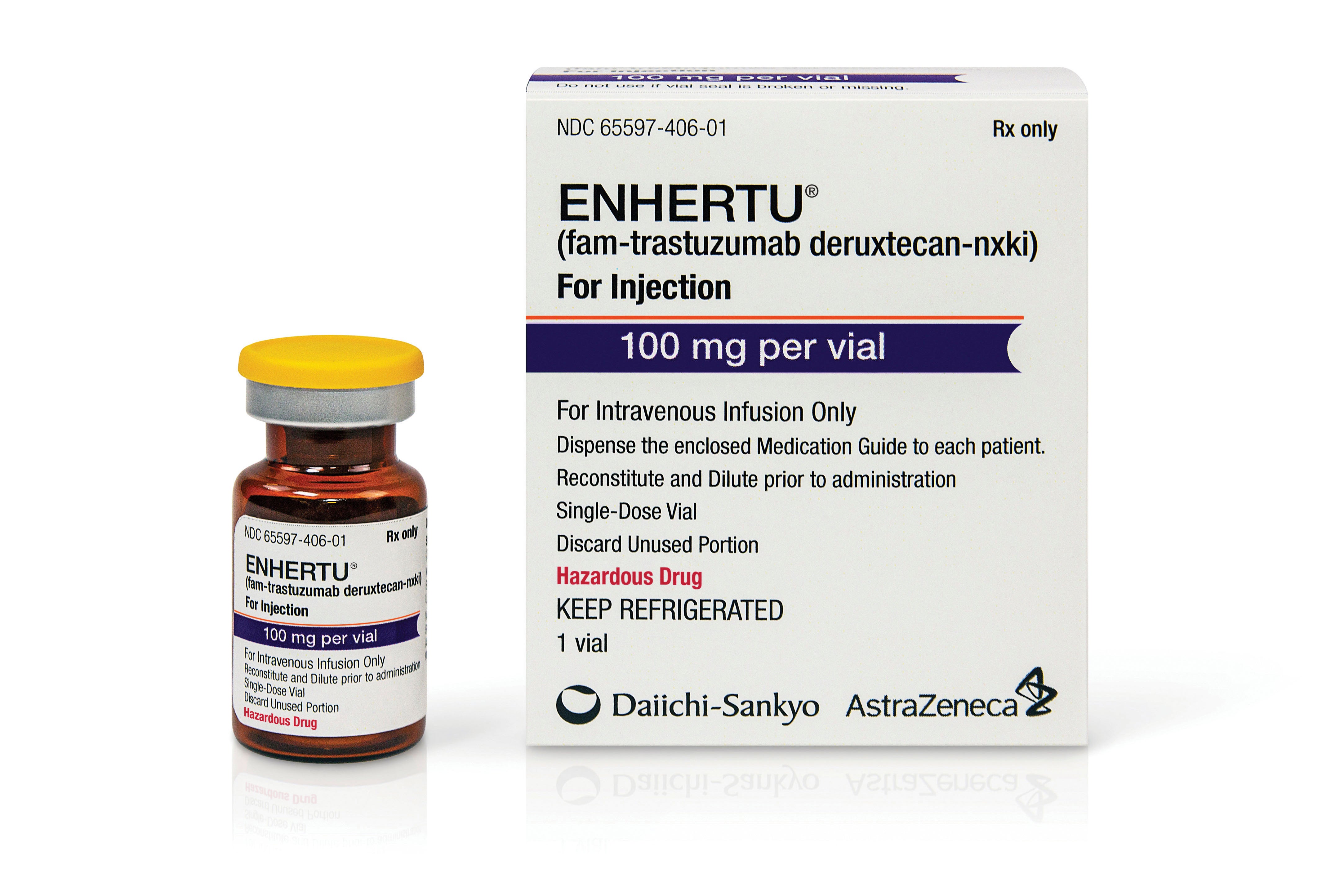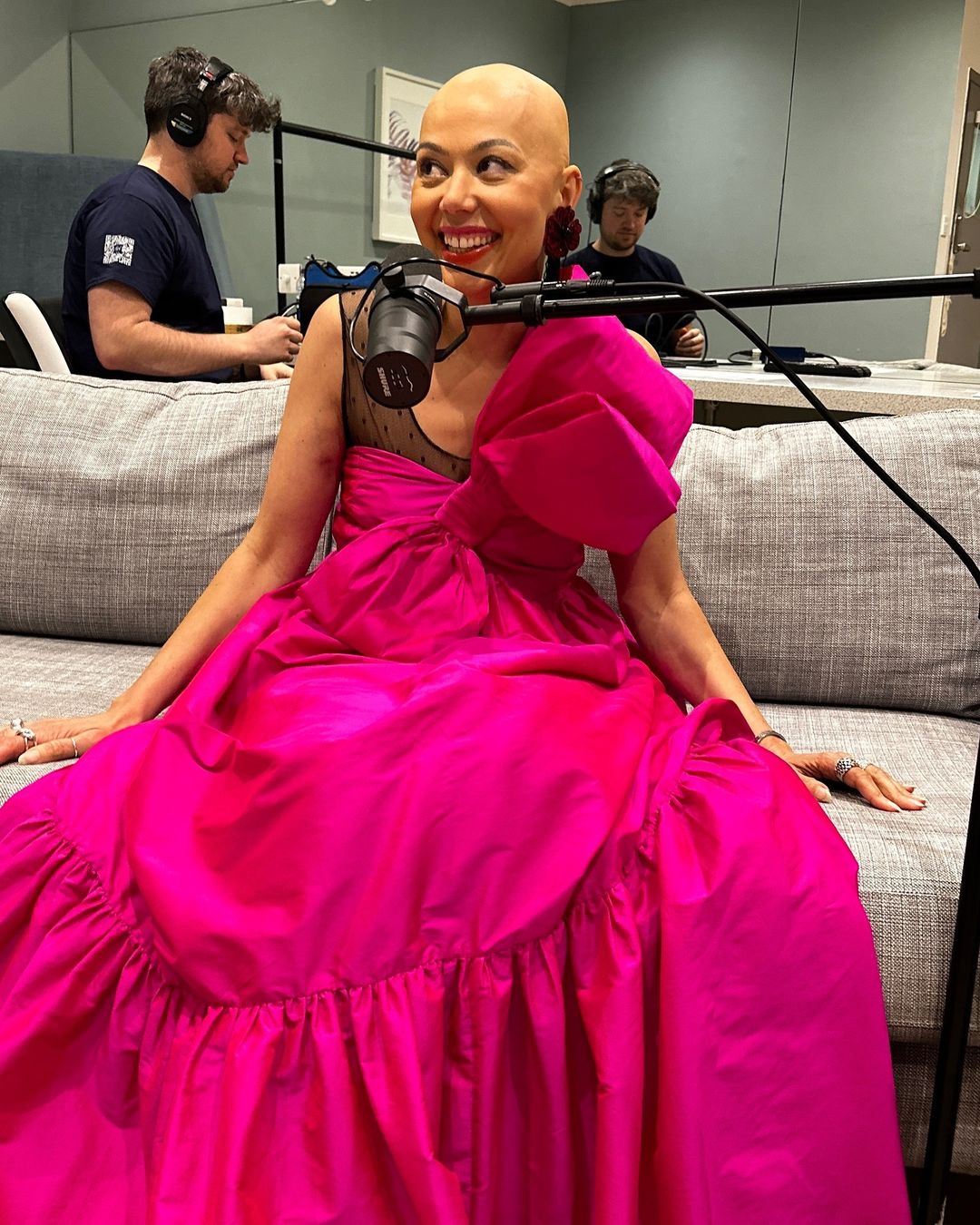I have incurable breast cancer – so why am I being denied a drug that can buy me more time?
If a breast cancer patient lives in Scotland they’d have access to a life-changing treatment which thousands of women in England can’t have on the NHS. Leah Hardy talks to Nina Lopes about her battle for a drug that she is being denied here because her condition isn’t classed as severe where she lives

Nina Lopes, 42, dreams about taking her 13-year-old daughter Ilani on holiday to Japan. It’s something they often talk about when they snuggle up together, but right now, even seeing Ilani celebrate her next birthday is something Nina knows she is lucky to be there for. Because Nina, who lives in south London, is seriously ill with incurable breast cancer.
Nina was first diagnosed with triple-negative breast cancer in July 2018, when Ilani was only six. “I was 36 and working as a head of design at a fashion company. I felt like I was in freefall, afraid my daughter would grow up without a mum.”
Nina had chemotherapy, surgery and radiotherapy and by April 2019, she hoped she was cured. However, two years later, Nina developed fatigue and pain in her bones. Doctors initially dismissed her symptoms as depression or side effects from her treatment, but after Nina begged her doctors for a scan, they finally relented in July 2021.
“The scan showed that my cancer had spread to the chest wall, sternum and lymph nodes in my chest”, she says. “My cancer was now metastatic, meaning it was inoperable and incurable, and I had as little as three months to live. At first, I thought I couldn’t go through treatment again, but when the chemo started to work, the pain lifted and I felt better, everything shifted mentally. I was determined to live.”
Since then, Nina has fought relentlessly for more time. She has suffered debilitating chemotherapy and sought out clinical trials offering experimental and potentially revolutionary drug combinations. However, each time the medication has either not worked, has had life-threatening side effects or stopped working as her cancer mutated.

Exhausted, with tumours growing in her lungs, chest and brain and fluid accumulating around her heart, Nina pinned her hopes on a drug called Enhertu, which campaigners believed would be approved in July. Enhertu has the potential to be life-changing for thousands of patients in England, who, like Nina, have a newly identified type of breast cancer called HER2-low which has spread to other parts of the body.
Enhertu works by targeting a protein called HER2 which is found in some breast cancer cells and makes the cells grow and divide aggressively. Enhertu locks onto HER2 receptors and can stop the cells from growing. It then delivers a powerful dose of chemotherapy directly into the heart of the tumour.
Currently, Enhertu is available for HER2-low metastatic breast cancer in 18 countries and counting. It was approved by the FDA in the US in August 2022, though it is not always covered by insurance, and the EU in January 2023. Last week Australia announced that HER2-low metastatic patients could get Enhertu under a scheme that means that eligible patients would only pay a maximum of AU$31.60 (£16) per treatment or just AU$7.70 with certain concessions.
Enhertu is already approved for use in the NHS in England for over 600 women with a type of metastatic breast cancer with a high percentage of HER2 proteins, called HER2-positive. The broadcaster and singer Linda Nolan has just announced that she has been offered it because she fits this criteria. However, unlike other countries, it hasn’t been approved for use beyond those parameters in England despite scientists recently discovering that cancers with lower levels of the protein also respond to Enhertu.
While the drug is not a cure, a huge international trial found the median survival of patients on Enhertu was two years, meaning that half of the patients on the trial were still alive after two years on the drug. Also, almost 90 per cent of people treated with Enhertu saw their tumours shrink, stop growing or slow down. Some 4 per cent of patients even saw their tumours disappear to the point where they were no longer visible on scans. Doctors don’t yet know how long this response may last.

Up to 65 per cent of patients with metastatic breast cancer have HER2-low tumours, meaning that Enhertu could become a blockbuster drug for thousands of patients. “I heard about Enhertu on social media a couple of years ago,” says Nina, who now presents her own Podcast,What’s Next, which examines how people cope when faced with life-changing events. “I pushed to be tested to see if I was eligible and was very happy that my cancer was HER2-low as it meant I could soon have another, more effective, treatment option than chemotherapy.”
However, in July, her hopes were dashed. The UK drugs regulator, the National Institute for Health and Care (NICE), rejected Enhertu for patients with HER2-low metastatic breast cancer in the NHS in England on the grounds that the costs were “too high” compared to the benefits.
Had NICE recommended the treatment, Nina would have been one of an estimated 1,000 patients a year who would have been eligible for it. Yet it was approved for use in the NHS for HER2-low breast cancers in Scotland, which is not regulated by NICE, in December 2023.
“When Enhertu was made available for HER2-low breast cancer in Australia last week,” says Nina. “It was yet another reminder that cancer treatment in England is behind other countries. For me, Scotland is the worst example because it’s right there. People say, ‘Why don’t you just move to Scotland?’ But it’s not so easy to uproot your whole life when you are ill. People are selling their houses to try to buy Enhertu privately. This is a stress we shouldn’t have to live with.”
Campaigners are particularly angry because they say the decision is the result of new NHS funding criteria which do not class all terminal cancers as “severe”. Every treatment offered by the NHS is rated for cost-effectiveness by NICE. The formula is complex, but there is a normal upper limit of £30,000 for each ‘quality-adjusted year of life’ gained.

Previously, extra money could be allotted for treatments aimed at terminally ill patients with a short life expectancy. However, now, additional funding depends on whether a patient’s condition is rated “moderately severe” which is given less funding than a patient’s condition that is rated “highly severe”.
When assessing Enhertu, NICE decided that HER2-low incurable breast cancer was only “moderately severe”, making Enhertu too expensive, yet people with secondary or metastatic breast cancer live on average for just five years. Life expectancy is even shorter for women with the aggressive type of cancer that Nina has.
So how much would Enhertu cost? Enhertu is given as a drip once every three weeks until it stops working and the amount given depends on the patients’ weight. At the full list price, each Enhertu treatment for a woman of around 60kg would cost £6,000. This could mean an annual bill of over £70,000 a year per patient. However, the pharma company behind the drug, Daiichi Sankyo in partnership with Astra Zeneca, has offered the NHS a “commercially sensitive” and confidential discount.
Melanie Sturtevant, associate director of policy and evidence at the charity Breast Cancer Now says, “We at Breast Cancer Now are absolutely devastated by this decision. We believe that had it gone through the previous ‘end of life’ criteria, Enhertu could have been approved. Secondary breast cancer is incurable, and patients who desperately need this drug find it very difficult to understand why their cancer hasn’t been classified as a disease of high severity.
“Breast Cancer Now is looking at all avenues to reverse this decision. NICE is currently reviewing the severity modifier, and we are hoping for an urgent change, so we don’t get into this situation again.”
Reflecting on her own situation Linda Nolan said: “To be able to try a new drug is amazing. To be able to try this is hope – it’s a plan B, not everyone is being allowed. To take this drug away from women is to take away their hope.
Nina, who must now rely on less effective chemotherapy and radiotherapy to try to slow the progress of her disease, is now actively campaigning to raise awareness around what the situation is in England for breast cancer patients like her. She says: “They are saying this is not a critical illness. But it is.”
Enhertu could take away the pain I’m suffering so I could live life to the full for longer. I feel as if they are robbing my daughter and me of life, and that’s the cruellest thing ever
There is now a stand-off between the NHS who want the pharma company to come back with a lower offer, and the company which says it has already given enough of a discount. But Nina and patients like her don’t have time for NICE’s haggling.
“We are allowing people to die because we are not working quickly,” she says. “My daughter is about to turn 14. When I first got diagnosed, I wanted to see her start secondary. I’ve outlived my prognosis by over three years, and I’ve had so much life in that time.
“There is a chance if it was approved that Enhertu could give me the same amount of time again. Sometimes people even go into remission while on it. Enhertu could take away the pain I’m suffering so I could live life to the full for longer. I feel as if they are robbing my daughter and me of life, and that’s the cruellest thing ever.”
The Charity Breast Cancer Now has launched a petition to encourage NICE, NHS England, and the drug companies to make Enhertu available to patients who urgently need it. You can sign it at breastcancernow.org






Join our commenting forum
Join thought-provoking conversations, follow other Independent readers and see their replies
Comments